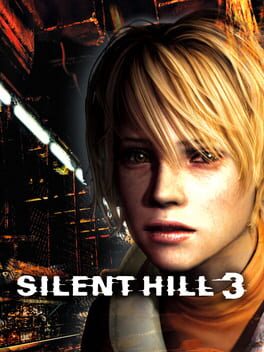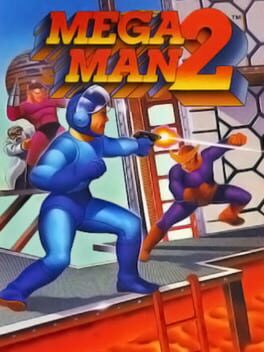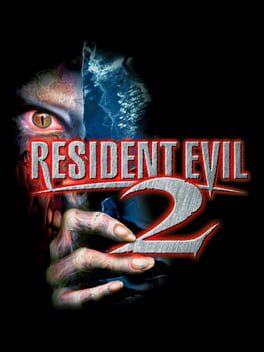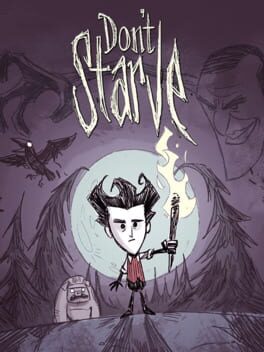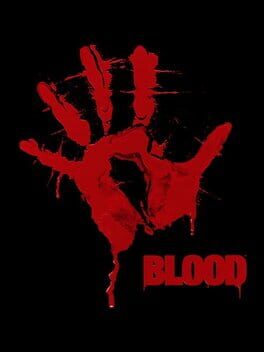muck
2003
trades subtlety for arguably having far and away the most intense atmosphere of the first three games; viscerally terrifying. the sound design here is exceptional to the point where many sounds made me think they were coming from somewhere besides my headphones. environment design is much more consistently surreal here than it was in 1-2. 1's otherworld was [to memory] exclusively abandoned fogworld contrasted with rusted red metal otherworld while 2 had some standout otherworld areas in basically the entire portion of the game beginning at the Historical Society and ending at the voyage to Lakeview. 3's environments, however, beginning around a third of the way through the game are unafraid of having utterly nonsensical geometry for large portions of their levels. several entire levels are dubious in their status as a mirror of some real world location.
by the artifice of level design which i cannot hope to understand, or by a difference in mood, i found myself actually seeking to avoid many encounters to either conserve resources or because i was actually scared. that is to say: unlike 1-2, 3 has what you would expect a survival horror game to have, or so i've been told.
so about that lack of subtlety: firstly, much of the horror elements are a bit over the top, the blood-stained amusement park mascots being emblematic of this, and secondly, the writing, while still having the awkwardness signature to the series, feels almost amateurish in how exaggerated it is at times, despite having the same writer as 2. this isn't per se an issue, perhaps it's a reflection of Heather's being a teenager, but there is less naturalism this time around, at the very least.
what is an issue however is the handling of theme towards the very end of the game: Heather and Douglas each have uncharacteristic rants about how bad religion is as if this theme was not obvious up to this point. i don't disagree with the sentiment, it is just that it is expressed with the grace of an r/atheist tipping their fedora in euphoria, and you are hearing the voice of the writer rather than the character the entire time.
by the artifice of level design which i cannot hope to understand, or by a difference in mood, i found myself actually seeking to avoid many encounters to either conserve resources or because i was actually scared. that is to say: unlike 1-2, 3 has what you would expect a survival horror game to have, or so i've been told.
so about that lack of subtlety: firstly, much of the horror elements are a bit over the top, the blood-stained amusement park mascots being emblematic of this, and secondly, the writing, while still having the awkwardness signature to the series, feels almost amateurish in how exaggerated it is at times, despite having the same writer as 2. this isn't per se an issue, perhaps it's a reflection of Heather's being a teenager, but there is less naturalism this time around, at the very least.
what is an issue however is the handling of theme towards the very end of the game: Heather and Douglas each have uncharacteristic rants about how bad religion is as if this theme was not obvious up to this point. i don't disagree with the sentiment, it is just that it is expressed with the grace of an r/atheist tipping their fedora in euphoria, and you are hearing the voice of the writer rather than the character the entire time.
1989
significant improvement over the previous entry in every way; far less annoying enemies and other obstacles (some notable exceptions), far more consistent behavior where it matters, much better sprite work and overall aesthetics, much better music, etc. just holistically far more pleasant.
the first game had an issue a lot of games of this generation had wherein many enemy and especially boss encounters are either trivial or absurd because you can't realistically dodge their attacks. due to that, the dominant strategy -- at least given the limitations of most human beings -- is just tanking damage and shooting the enemy hoping you win. most of the bosses in Mega Man 1 require this "strategy"; some still do in 2, but it's much less. enemy behavior overall is also less buggier and more predictable, which in a similar vein allows for more neuron-activating tactical decision-making instead of mindless spam. these are all sort of "platformer 101" elements, so it's hardly high praise and compared to contemporary offerings this game still isn't very special, but given the quality of 1 noting these improvements is relevant.
also weirdly... profound? the [famous] intro, some of the levels, combined with the [famous] ending, are all very emotional and evocative for what this otherwise is. i presume that's mostly the music working its magic; actually, the music in general is very good, able to capture a lot of tones (i.e. "vibes", not musical tone) in ways that contemporaneous games don't come close to. with this game one can start to see what people see in this series.
the first game had an issue a lot of games of this generation had wherein many enemy and especially boss encounters are either trivial or absurd because you can't realistically dodge their attacks. due to that, the dominant strategy -- at least given the limitations of most human beings -- is just tanking damage and shooting the enemy hoping you win. most of the bosses in Mega Man 1 require this "strategy"; some still do in 2, but it's much less. enemy behavior overall is also less buggier and more predictable, which in a similar vein allows for more neuron-activating tactical decision-making instead of mindless spam. these are all sort of "platformer 101" elements, so it's hardly high praise and compared to contemporary offerings this game still isn't very special, but given the quality of 1 noting these improvements is relevant.
also weirdly... profound? the [famous] intro, some of the levels, combined with the [famous] ending, are all very emotional and evocative for what this otherwise is. i presume that's mostly the music working its magic; actually, the music in general is very good, able to capture a lot of tones (i.e. "vibes", not musical tone) in ways that contemporaneous games don't come close to. with this game one can start to see what people see in this series.
1998
is [sort of] to Resident Evil what Metroid Fusion is to Super Metroid. that is to say, the game is a lot more linear than it's immediate predecessor, or at least feels more linear. also much easier and much shorter, despite sporting higher enemy density and taking place over a larger diegetic area. perhaps for all of if not strictly those reasons, the game is worse. the loop of 1 wherein one attempts to make the most of each of their dangerous saves to the end of conserving ink ribbons is gone in spirit if still technically present; combat is too easy and ink ribbons are too plentiful, and the structure of the world means you'll rarely be using the same typewriter twice if you are over-conserving due to lingering instincts from the previous game (as i did). you're given multiple weapons (at least as Claire) that you don't even really need and will have plenty of ammo for by the time the game ends.
still, like Fusion, it's ultimately a good game; the most notable improvement relative to 1 being that the dialogue writing and voice acting are vastly improved to the point where you no longer notice how comically bad it is, though it is still often on-the-nose or stilted. another is that the aesthetics are even more on point here: the pre-rendered environments far more detailed, especially noticeable in the introductory alleyways of the city, and Birkin is gross in a way 1 never was.
still, like Fusion, it's ultimately a good game; the most notable improvement relative to 1 being that the dialogue writing and voice acting are vastly improved to the point where you no longer notice how comically bad it is, though it is still often on-the-nose or stilted. another is that the aesthetics are even more on point here: the pre-rendered environments far more detailed, especially noticeable in the introductory alleyways of the city, and Birkin is gross in a way 1 never was.
2013
1997
way better than Doom, Doom II: Hell on Earth, Quake, and likely other alumni. also way better than many games aping it and its peers: Dusk, Prodeus, and so on. it's actually kind of surprising how good it is, actually, given details regarding its production. is way harder than any of the aforementioned games. that can largely be pinned on something of a signature and infamous feature: the Cultists (and Fanatics): a common mook, the second monster met, is a fairly long-range high-damage shotgun hitscanner, with an elite tommy gun counterpart. they can't really be dodged or outranged, and they kill faster than an enemy first met in the penultimate episode. their presence alters the first-person-shooting on a close-to-if-not fundamental level, requiring peeking and pre-firing given that every half-second spent around a corner could cost ~50 health. learning how to counter them is counterintuitive and excruciating but rewarding; it's something special and not a sort of experience that would be replicated in the genre for around two decades.
there are only two real issues. first, the use of bullet-sponge boss enemies as recurring enemies after their boss fights -- boss fights which aren't even good. second, some maps (more parts of maps) are relatively and needlessly labyrinthine, bordering on reminiscence to contemporaries, but this is basically a nitpick in the face of largely above-par level design.
there are only two real issues. first, the use of bullet-sponge boss enemies as recurring enemies after their boss fights -- boss fights which aren't even good. second, some maps (more parts of maps) are relatively and needlessly labyrinthine, bordering on reminiscence to contemporaries, but this is basically a nitpick in the face of largely above-par level design.
